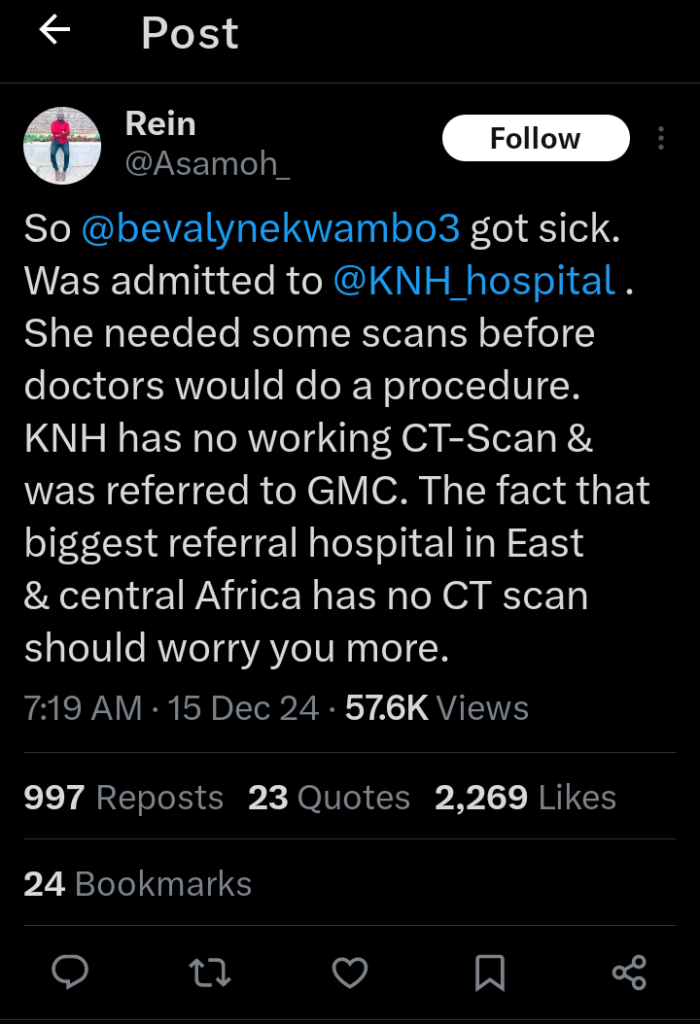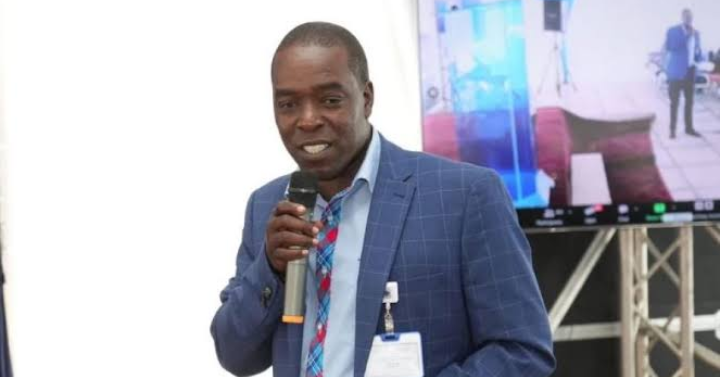The Kenyatta National Hospital (KNH), Kenya’s largest referral facility, is facing mounting criticism over severe operational failures under the leadership of CEO Dr. Evanson Kamuri.
A glaring example of this incompetence was recently highlighted when a patient, Bevalyne Kwambo, was referred to an external facility for a CT scan due to the hospital’s inability to provide the service.
This situation is deeply concerning for a hospital of KNH’s stature, tasked with handling complex medical cases across East and Central Africa.
The lack of a functional CT scanner at KNH is indicative of deeper systemic issues within the institution.
It not only underscores the hospital’s failure to maintain essential medical equipment but also raises serious questions about its financial priorities.
Patients and healthcare advocates alike have expressed outrage, pointing out that such inadequacies compromise healthcare delivery and force vulnerable citizens to incur additional costs for services that should be readily available at the facility.
Compounding these operational failures are allegations of corruption against Dr. Kamuri.
The Ethics and Anti-Corruption Commission (EACC) is currently investigating the CEO for his involvement in fraudulent procurement deals worth hundreds of millions of shillings.

Dr. Kamuri is accused of awarding tenders irregularly, including contracts for an oxygen-generating plant and an enterprise resource management system.
These deals reportedly benefited companies linked to him.
The EACC has already frozen over KSh 28 million in his accounts and seized additional assets, citing a big discrepancy between his known income and his accumulated wealth.
These financial irregularities have contributed to the institution’s operational collapse.
Funds that could have been allocated for upgrading critical medical equipment or hiring qualified personnel appear to have been diverted.
As a result, KNH has been unable to fulfill its mandate as a leading referral hospital.
Patients are left to bear the brunt of these failures, with some, like Ms. Kwambo, being denied timely medical interventions due to lack of equipment.
Dr. Kamuri’s leadership has also been criticized for fostering a culture of mismanagement.
Internal disputes between the CEO and other directors have reportedly disrupted the hospital’s administration.
This dysfunction has trickled down to the staff and service delivery, further eroding public trust in the institution.
The ongoing investigations into Dr. Kamuri’s financial dealings are a critical step toward accountability, but more comprehensive reforms are urgently needed.
KNH’s status as the region’s premier healthcare provider is at risk unless drastic measures are taken to address its leadership and operational challenges.
For now, the hospital remains a glaring example of how corruption and mismanagement can undermine public institutions, leaving ordinary citizens to suffer the consequences.

